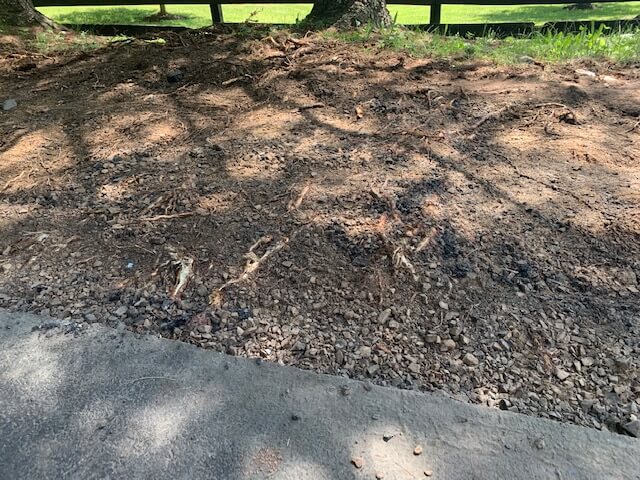Our Northern Virginia climate almost guarantees that all driveways, asphalt or concrete, will crack at some point in time. The objective for the homeowner is to put off that cracking for as long as possible and then minimize the damage by repairing the cracks in a timely fashion. A well-maintained asphalt driveway will give you 20 years or more of service in Virginia despite Mother Nature’s efforts to shorten that time.
One thing for certain, if you put off repairing small cracks, they will not go away but most certainly lead to bigger, more costly, repair issues.
Natural Causes of Cracks in Asphalt Driveways
Water is ultimately the biggest cause of damage to an asphalt driveway. Rain, melting snow, heavy dew, or even a poorly aimed irrigation system will percolate down to the substrate (base) causing it to slowly but surely shift (it only took a couple of million years for water to carve out the Grand Canyon). Toss in the ground contracting and expanding due to our Northern Virginia seasonal freezes and thaws and you have a situation where the earth beneath the asphalt surface is moving and destined to create cracks.
Asphalt is flexible and can adapt to small shifts in the base beneath it, but over time, asphalt has to crack to accommodate the new shape of the base beneath it. When the first small cracks appear, they signal your opportunity to prevent additional cracking and potholes. Cracks, even shallow ones, collect water that can permeate into the asphalt and down to the base. Worse, in winter the water can freeze expanding the crack speeding up the process.
And then there are trees. Trees planted near an asphalt driveway can send roots into the substrate looking for water. When that happens, you’ll see alligator cracking or even potholes forming and that can be a pricey repair.

How to Minimize Asphalt Cracking and Get the Most Out of Your Driveway
If shallow cracks (less than ¼ inch deep) appear, quick repair will prevent those minor cracks from becoming major issues. Repair of these cracks can be a DIY weekend project. You can get the crack filler at most home improvement stores. It’s applied much like caulk and like caulking, you want to ensure that the crack is clean of dirt and lose debris. The filler will not adhere if dirt is present.
If it has been a couple of years since your asphalt driveway has been sealed, give us a call and we’ll repair your cracks and then add a fresh coat of protection for the entire drive by applying a high-quality asphalt sealing compound. Your cracks will be gone, and the sealcoat will give the entire drive a like new appearance.
If you would like us to take care of the task, take a moment now and contact us at Standard Paving Inc or complete a free quote form and we’ll get back to you promptly.
